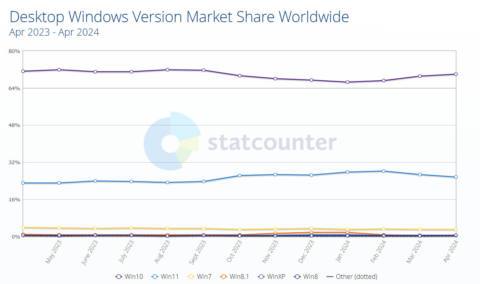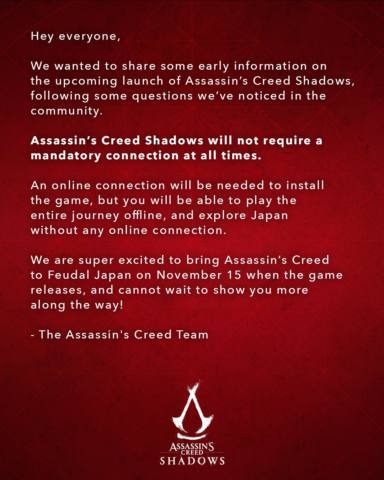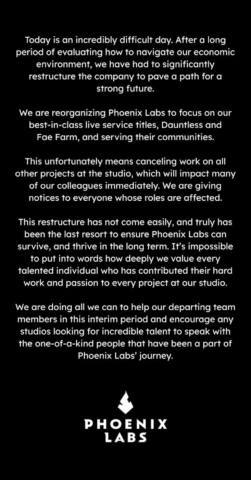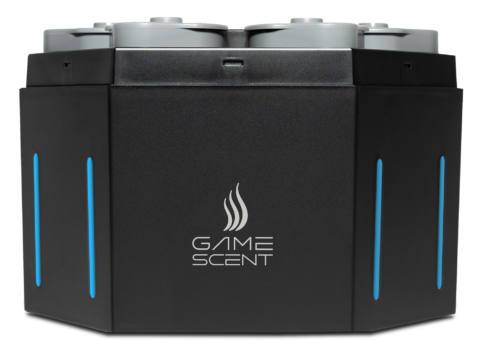Microsoft must be wringing its hands in frustration as it tries to get users to move on from Windows 10 and embrace the wonders of Windows 11. It seems no matter what it tries, users just stubbornly refuse to move on from that old dinosaur of an OS.
According to Statcounter (via Neowin), as of March 2024, Windows 10 accounts for just over 69% of desktop market share worldwide. That's an increase of nearly two points from February. By contrast, Windows 11 claimed 26.7% in March, down from 28.16% in February. A couple of points here and there isn't what you'd call a dramatic change, but a year's worth of data shows Windows 11 has failed to win the hearts and minds of those users familiar with Windows 10.

It's quite an oddity to see the market share of the latest Windows OS decrease over time. You'd expect users upgrading their PCs to gradually adopt the latest version of Windows. It could be just a data outlier, but if not, Microsoft has a real problem on its hands.
The truth is, Windows 10 is a decent OS that doesn't lack much in the way of functionality compared to Windows 11. A new user interface and start menu are not the game changers Microsoft says they are.
Most of the folks who upgraded their laptops and PCs during the work-from-home pandemic boom are seemingly happy with their systems and don't feel the need to upgrade. Why risk breaking all your files and apps if you don't have to? If it ain't broke, don't fix it.
Microsoft will be hoping a blitz of “AI everything, everywhere, all at once” marketing campaigns will prompt users to upgrade to Windows 11. After all, this is the year of the AI PC, right?
If Microsoft wants to convince folks to buy a new PC with Windows 11, it'll have to do better than to pin all its hopes on AI. It needs to promote its better gaming features, performance and superior native applications. It's only been two and a half years, though, so don't hold your breath on that. Or, maybe it just can't.
I want an OS to be the foundation for the apps I want to run, not be the one bloated app to rule them all. I never use OneDrive, Office 365, Xbox, Copilot, Teams, Cortana or any of that stuff.
Maybe I should go back to Windows 10 too.






